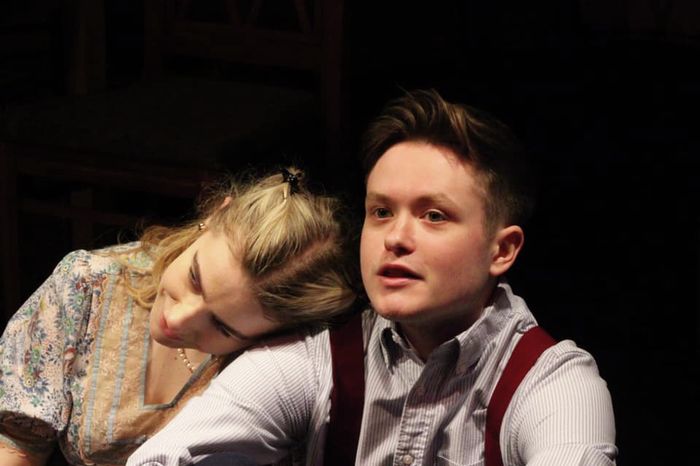A Festival of New Writing: The Power of Student Writing
We can’t underestimate this three-night showcase of new theatrical talent, argues Matt Paul

Three nights. Nine plays. All student-written. I like to believe that I’m sitting here in the dress rehearsals watching the inaugural plays of the next Tom Stoppards and Jessica Swales, brought to life on stage at the Howard Theatre.
The annual Festival of New Writing has become a staple event of not only the student writing calendar but the Cambridge Theatre year as a whole. We have a proud history of cultivating individually unique plays, and this year is no different. We have a play-within-play, a play imbued with Hungarian folklore, and a play centered around breakfast cereal to name but a few. Where else would such a variety of productions be found on one stage at any one time? The festival gives students the opportunity for their work to be seen by a paying audience, an opportunity that is almost unheard of for unpublished playwrights. We really felt it was important that the festival looks to reconcile the conundrum of a new playwright – a writer can’t improve unless their play is staged, but if it isn’t ‘good enough’ then it wouldn’t be staged in the first place. Downing Dramatic Society wants to give the opportunity for playwrights to improve their craft.

These plays are not unequivocally polished or ready for the West End, the scripts themselves are totally different entities from the submitted plays I read all those months ago. But as the process has gone on, I started to realise that this is one of the most important aspects of the Festival; it’s a collaborative process between writer, directors and cast to evolve a piece of theatre, literally and figuratively, from the page to the stage. As Stephen Bennett, the Howard Theatre’s regular associate director, puts it, “these are all works in development; growing and changing with every rehearsal and note-session”.
Student writing seems to embrace all that is exciting about Cambridge theatre.
The final stage of this ongoing development is the giving of notes by three industry professionals who attend the festival in the capacity of ‘judges’. Though they are not here to judge an overall winner, but rather to read and watch each play in isolation, giving invaluable feedback and constructive criticism on where the writers can take their work next. This takes the form of a Q&A after each night of three plays have been performed. The audience is invited and encouraged to stay and engage in these interactive sessions, for, if anything, the audience’s engagement is the most vital aspect of any production. The ideal of the festival is that our nine writers will carry on working on their plays, loaded with the knowledge of what it actually looks like on stage, invigorated by an audience reaction and critiques from those who have succeeded in the industry.

The set for each show is intentionally simple, allowing us to keep set change time down to a minimum between the shows. However, such a practicality also inadvertently lends itself to inviting the audience into their separate worlds, requesting them to actively use their imagination to create a variety of settings. On one night, we go from New York into a tube carriage to end up in an office. The audience are transported between totally discrete worlds, yet all staged in the same place with similar sets and props. It feels much more intimate and breaking down this barrier between spectacle and spectator by not requiring huge set pieces adds to this feeling that these scripts are in the development process. As an audience, your contribution to the world of the play is as important as the directors. This is the epitome of collaboration that we are eager to encourage with A Festival of New Writing.
My experience of organising this event has made me realise that student writing seems to embrace all that is exciting about Cambridge theatre; the fact that not just the acting and directing are taken on by amateurs, but that the very play itself, its narrative, its dialogue, its themes, are the product of an aspiring and passionate amateur. All nine plays are unique in nearly every way, but if I was to pin down one thing that they all had in common, it is that all foster manifestations of this aspiration and passion, bleeding its way from the student writer into the very fabric of their plays.
A Festival of New Writing 2020 runs from Thursday 5th March to Saturday 7th March at the Howard Theatre, Downing College.
 News / Clare Hall spent over £500k opposing busway 24 December 2025
News / Clare Hall spent over £500k opposing busway 24 December 2025 Comment / The ‘class’ of Cambridge24 December 2025
Comment / The ‘class’ of Cambridge24 December 2025 News / Caius mourns its tree-mendous loss23 December 2025
News / Caius mourns its tree-mendous loss23 December 2025 Comment / Yes, I’m brown – but I have more important things to say22 December 2025
Comment / Yes, I’m brown – but I have more important things to say22 December 2025 News / Girton JCR publishes open letter expressing solidarity with Palestine25 December 2025
News / Girton JCR publishes open letter expressing solidarity with Palestine25 December 2025










